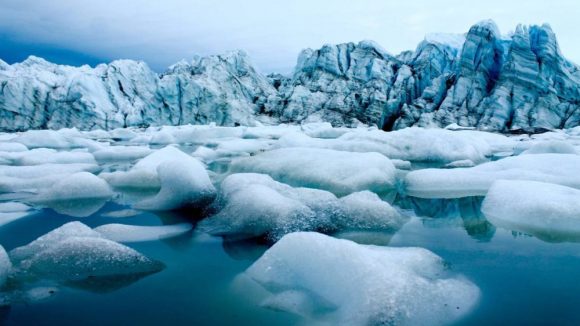It is predicted that by 2040 we could sail through the Arctic, not skirting it. The new routes would shorten more than 30% of the traditional routes to go from Europe and America to Asia, and vice versa. Photo: Nature Magazine
The first summer in which virtually all floating sea ice in the Arctic melts could occur in the 2030s, about 10 years earlier than scientists predict, a new study published Tuesday warns.
The research group stressed that this scenario could become a reality even if greenhouse gas emissions are reduced more intensively than the international community is currently achieving.
In this way, the research has shown that the time when it was still possible to conserve the region's sea ice during the summer months was wasted.
"People didn't listen to our warnings. Unfortunately, it is already too late to save the summer sea ice of the Arctic, "said one of the authors of the study, oceanographer Dirk Notz, from the University of Hamburg (Germany), quoted by The Guardian.
"It's the first major component of the Earth system that we're going to lose to global warming," he added.
In that context, the scientists stressed that nations should prepare for an increase in extreme weather conditions throughout the Northern Hemisphere, which is likely to occur as a result of this meteorological milestone.
In 2021, the Intergovernmental Panel on Climate Change (IPCC) concluded that the Arctic would maintain its summer ice if emissions were sharply reduced, and predicted that, in the event of intermediate or high emissions, summer ice would be lost in the 2040s.
However, the new research, which brings forward the latest forecast to the 2030s, forecasts the loss of summer sea ice even under a low-emissions scenario by the 2050s.
Research also shows that 90% of the current melting is a consequence of man-made global warming, while the rest is due to natural factors, such as varying sun intensity and emissions from volcanoes.
"Humans are really to blame for almost all of the Arctic sea ice loss we've been observing," Notz said.
(With information from RT en Español)
See also
World Environment Day: Plastic-free development, a planet in the red and urgent action
